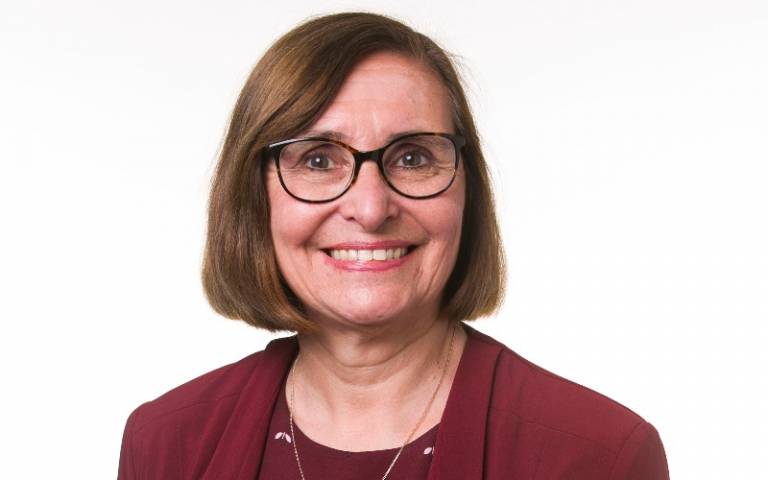Progress on health and social care workforce ‘inadequate’, finds expert panel led by UCL academic
25 July 2022
An independent Parliamentary review, led by Professor Dame Jane Dacre (UCL Medical School), has rated the UK Government as 'inadequate', in its progress on meeting commitments to improve the health and social care workforce in England.

In May this year, the Health and Social Care Committee tasked the politically impartial Expert Panel, Chaired by Dame Jane, to review the government’s pledge to “ensure that the NHS and social care system have the nurses, midwives, doctors, carer and other health professionals that it needs”.
The Expert Panel, set up in August 2020, gives Care Quality Commission-style ratings on the government’s performance in meeting policy commitments, grading them from “inadequate” to “outstanding”. The independent and objective evaluation is designed to enhance the select committee’s core task of holding the government and ministers to account.
For this latest evaluation, four specialists in health and social care, workforce modelling, social policy, and knowledge exchange were appointed, bringing their subject-specific expertise and experience.
The specialist members worked alongside the core members of the Expert Panel and focused on seven commitments the government made in three policy areas: planning for the workforce – including how targets are set, recruitment, and retention; building a skilled workforce – including incorporating technology and professional development of staff; wellbeing at work – including support services for staff and reducing bullying rates.
Key findings:
On workforce planning: experts found no evidence that targets for staff numbers were linked with patient and service need and little evidence of social care workforce planning at a local or national level. According to many stakeholders the Panel heard from, the lack of workforce planning by the government is having a negative impact on recruitment and retention in both sectors.
On building a skilled workforce: the government was unable to give a breakdown of spending for social care to demonstrate how the extra £1 billion committed annually was spent on additional social care staff, better infrastructure, technology, and facilities.
Wellbeing at work: rates of bullying, harassment and abuse in the NHS remain “concerningly high” with more than 1 in 4 NHS staff experiencing at least one incident of bullying in the preceding 12 months. NHS estimates that bullying costs over £2 billion a year however investment in tackling it falls woefully short for the scale of the task.
Dame Jane, who is Professor of Medical Education at UCL, said: “We could not give the government any higher than an ‘inadequate’ rating on its overall progress in meeting its own targets set for the NHS and social care workforce. We were unable to rate progress on any of the individual commitments we evaluated as good.”
“Rates of bullying in the NHS are far too high, and we found measures to tackle the problem were either inadequate or require improvement.
“Worryingly, our evaluation found that overall progress on all the government commitments we looked at which involved social care, was inadequate.
“In terms of learning how better to support staff, the government has underestimated the complexity of the fragmented delivery model in the social care sector and failed to put a mechanism in place to listen to their views.”
The Expert Panel review fed into the Health and Social Care Committee's Report, 'Workforce: recruitment, training, and retention in Health and Social Care’, which was published on Monday 25 July, 2022.
Links
- Report: ‘Workforce: recruitment, training, and retention in Health and Social Care’
- Professor Dame Jane Dacre’s academic profile
- UCL Medical School
- Health and Social Care Committee
Source
Media contact
Henry Killworth
Tel: + 44 (0) 7881 833274
E: h.killworth [at] ucl.ac.uk
 Close
Close

